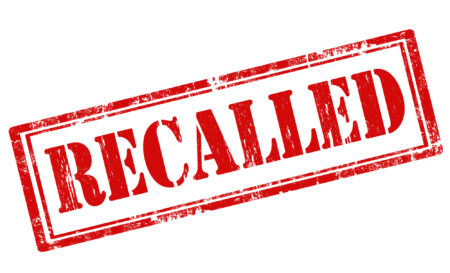For many years, VUEMED has been advocating for the application of RFID technology in hospitals to manage their clinical inventory and supply chain. Although not all of our customers are quite ready yet for its implementation, the future of RFID in healthcare is here.
RFID should no longer be seen as some type of outlier or futuristic sci fi technology.
In fact, we expect that soon it will be customary for hospitals to use RFID as a surefire way of ensuring that costs and waste are brought under control, inventory is optimized, charge capture is accurate, products are available, recalled items are traceable to specific patients, and so much more.
VUEMED uses RAIN RFID technology with its VueTrack-RF system. As explained by the RAIN Alliance, the word RAIN is an acronym derived from RAdio frequency IdentificatioN, and “is intended as a nod to the link between UHF [ultra-high frequency] RFID and the Cloud, where RFID-based data can be stored, managed and shared via the Internet. A RAIN RFID solution uses a reader to read and write a tagged item, manage the data and take action.”
RAIN RFID is already proving itself on the pharmaceutical/medication side. As noted in a recent Acumen Research and Consulting report about RFID in healthcare, “Hanmi Pharmaceutical Co., one of Korea’s largest pharmaceutical companies, employs RFID to increase efficiency, monitor product movements, and assist in carrying out government regulated quality management. The company already uses RAIN RFID tags to track 60 million product units annually, from packaging to picking and shipping.”
And according to an article in Healthcare IT News, Steve Wenger, Inpatient Pharmacy Manager at Rady Children’s Hospital, talks about the value of pre-tagged RFID-enabled pharmaceuticals direct from the manufacturer: “The use of this has just exceeded our expectations…Traditionally, we had to manually tag everything – and that involves a lot of time and effort to encode and then verify the medication data…This is such a value to us because it not only saves us time but can also prevent information from being encoded incorrectly, which could lead to a safety issue.”
Further, a recent report by the American Society of Health-System Pharmacists (ASHP) Foundation shows just how quickly RFID is becoming popular at pharmacies. They conducted a survey of 232 ASHP members, 81% of whom work in hospital and health system pharmacies, and found that 40% have already implemented RFID technology and 31% are considering it. And of those currently using RFID, the most common use of it (84%) is for managing code trays and boxes.
Better inventory control and drug recall and expiration management were among the most cited reasons for pharmacies choosing RFID. The automation that RFID offers is key to avoiding human error.
And RFID is already becoming standard in the retail world. Impinj released research findings in April 2022 about how retailers have quickly moved toward adopting RFID technology and the Internet of Things (IoT) as a result of the pandemic and ensuing supply chain problems. They found that 95% of retailers surveyed see RFID as a “key component to their digital transformation efforts,” opining that “the retailer who can accurately stand behind inventory availability is the retailer who will win not just the sale, but also the lasting recollection of the consumer as ‘the one who could help me solve my problems few others could.’”
An article by McKinsey further illustrates the advantages of RFID in retail, describing how the apparel company lululemon athletica “uses product-location information to deliver a more flexible, omnichannel fulfillment model. The retailer uses RFID tags throughout its network of nearly 500 stores and boasts a resulting 98 percent inventory accuracy and a payback period of one year or less.”
And RFID Journal recently reported how Walmart has become a leader in RFID implementation. In a remarkable move, it will be requiring its suppliers to include RFID tags on all home goods, hardware, and automotive products, as well as on some entertainment and toys products by September 2, 2022. In 2020, Walmart began using RAIN RFID technology to track apparel goods in its stores, which enabled them to ensure correct stock levels and on-time replenishment. Shelly McDougal, Walmart’s Senior Director of Merchandising, commented, “We have seen dramatic results in our ability to ensure product is available for our customers, leading to improved online order fulfillment and customer satisfaction.”
Accurate and automated inventory management – namely, reliable stock and reorder information – appears to be the biggest draw of RFID for retailers.
For VUEMED, the beauty of RAIN RFID technology is that it can continuously and automatically track the movement and location of all tagged items at hospitals – without the need for human intervention or special cabinetry. By turning any space – whether a supply room, procedure room, or warehouse – into a fully controlled inventory space, RAIN RFID ensures the accurate data acquisition for every item throughout its life cycle in the facility, from point of entry in the facility to point of care in a patient procedure.
Indeed, automated item tracking is one of RAIN RFID’s biggest advantages: it eliminates mistakes from manual entries, saves staff time, gives visibility into the asset’s location in real time, signals the need for replenishment, and provides data to help with supply forecasting.
As mentioned above, RAIN RFID technology works with the power of the Cloud, which stores, computes, analyzes, and reports the data with easy user access, transforming it into actionable information through meaningful analytical reports that enable hospitals to implement needed adjustments and changes. Data analytics give hospitals the power to make decisions that help the bottom line as well as protect patients by ensuring, for example, that required items are in stock when the practitioners need them, among many other benefits.
RAIN RFID technology is the most effective and failproof way of obtaining this data, tracking medical devices and supplies in real time with precision and accuracy. Accurate data is the key to achieving financial health for healthcare organizations and for ensuring quality patient care.
Let’s embrace RFID in health care – it’s the future of successful inventory management and supply chain optimization, and its time has come.





